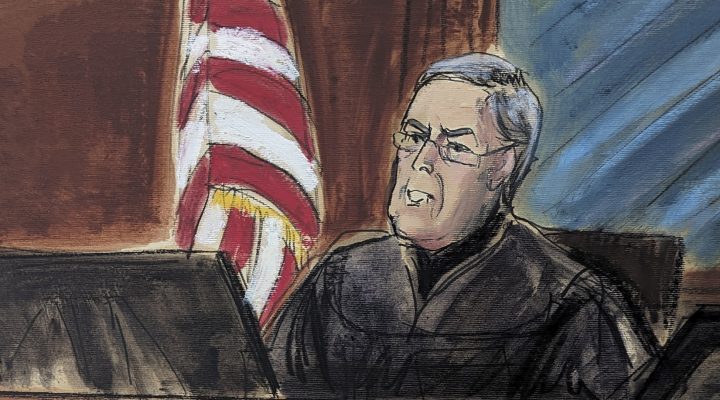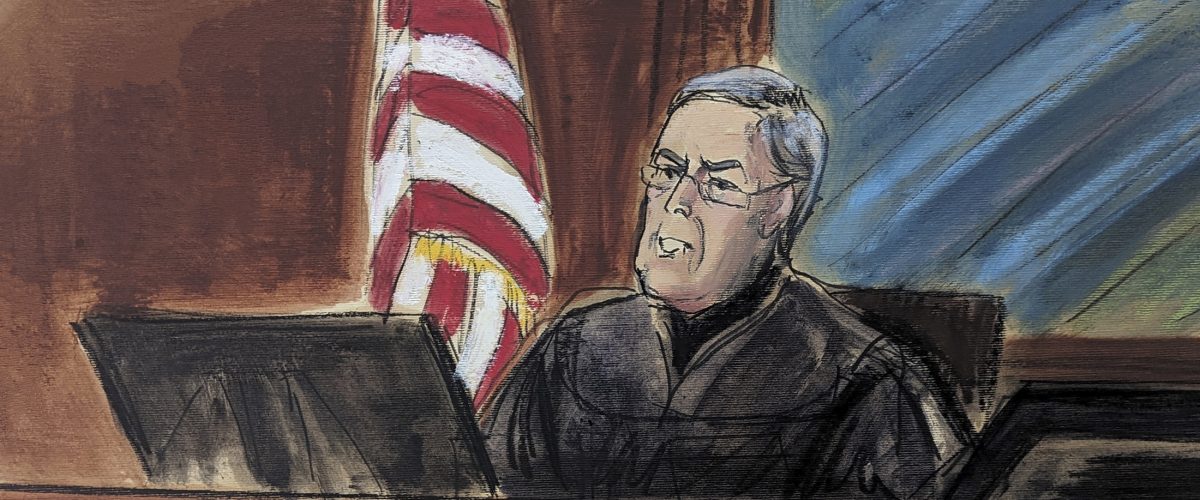Judge Lewis A. Kaplan of the federal court of the Southern District of New York, has granted indicted former Southwestern Seminary professor and interim provost Matthew Queen an additional three weeks to make motions, given an ongoing dispute between Queen’s counsel and the federal government over discovery material.
Based on court transcripts of Queen’s previous appearances obtained by BNG and a previous interview with his attorney, Sam Schmidt, these will include motions to suppress evidence and even dismiss the case — highly unusual moves given that such motions are usually reserved for when there are allegations of prosecutorial misconduct or the violation of a defendant’s civil rights, none of which Schmidt, up until this point, has publicly alleged.
While the postponement of the motion deadline may not immediately affect the trial, which is currently scheduled for Dec. 9, the possibility of a delay remains. This uncertainty adds a layer of concern to the ongoing legal proceedings.

Matthew Queen
Judge Kaplan endorsed the request for additional time by Schmidt, pending the court’s forthcoming decision on the government’s request for a protective order. Prosecutors seek to block Queen and Schmidt from disseminating information about the case to Queen’s employer and the media. Schmidt alleges Queen should be able to clear his name because of alleged misrepresentation by the government in a widely publicized press release.
It is uncertain when Kaplan will make a decision on the protective order. If he grants the government’s request, a significant portion of the discovery material will remain “attorney’s eyes only,” preventing Queen from accessing it or sharing details with other individuals. If the proposed order is rejected, Schmidt and Queen could potentially publicize the discovery material.
This could include terabytes of data Southwestern handed over to the FBI, which may contain private and sensitive correspondence between seminary administrators and faculty. Another possibility is that Kaplan could issue a limited protective order, allowing for some material to be released while other material would remain confidential.
Schmidt also claimed in a previous letter to the court that Queen changed the information he provided the government in meetings with FBI agents after being directed by the seminary’s legal counsel “to pray and meditate to remember” and “woke up from a dream believing that he remembered more” of a conversation about which he is alleged to have falsified records.
Queen’s claim of a divine revelation has sparked controversy. SBC theologians have largely downplayed (although not outright rejected) such claims of special revelation, emphasizing the centrality of Scripture for practical life decisions.
BNG’s coverage of the curious claim drew the attention of several abuse reform advocates, including BNG contributor and retired appellate attorney Christa Brown. Remarking on Queen’s claim of a divine dream to provide new information to the FBI, Brown quipped, “How convenient to have a god who provides divine imprimatur for the power of a man. Basically, God becomes the ultimate authority who gets used to sanctify whatever authoritarian ends the humans hold. And often those ends are a far cry from holy.”
The claim also drew the attention of the popular church watchdog blog The Wartburg Watch, which most recently played a pivotal role in the resignation of former Gateway Church Senior Pastor Robert Morris. In a post with nearly 21,000 impressions, Editor Dee Parsons sighed of Queen’s claim, “Some days, there are no words…”
This widespread attention did not sit well with Queen or Schmidt.
Schmidt asserted in a July 26 letter to the government that BNG had “obviously misinterpreted” his previous response to the government petition “because he only testified once after he remember (sic) additional information.”
While Schmidt may be using the word “testify” in the technical sense of appearing before the grand jury, BNG has confirmed that Queen was interviewed by the government multiple times and changed details of his story in nearly every meeting. This was confirmed via examination of court documents, interviews with several individuals familiar with the investigation, and cross-referencing statements by the prosecution, defense and seminary. All this information was compiled into an exhaustive timeline BNG published in a story on the setting of Queen’s trial date.
In a previous interview with BNG, Schmidt indicated Queen was not seeking to share the actual discovery materials with his church or the press, but only pertinent information he thinks will clear his name because of being placed on leave by his church and broad misrepresentations he believes have come from the government and the media. The government disagrees and has alleged that releasing information would endanger witnesses and victims.
In a scathing reply to Schmidt’s initial letter to the court, the government argued: “The defendant proposes publicly and selectively disseminating materials to which there is no presumption of public access in an effort to support his evolving explanations for his conduct. … This impermissible use of criminal discovery must be prohibited.”
Queen has vociferously denied any wrongdoing.
Related articles:
Former seminary professor claims misrepresentation while government says his story keeps ‘evolving’
Former seminary administrator pleads not guilty, is placed on leave by his NC church
Former Southwestern administrator indicted for falsifying sexual abuse records
Court transcripts show former professor charged in FBI probe may seek plea, suppression or dismissal
Dockery comments on indictment, names two other employees involved


